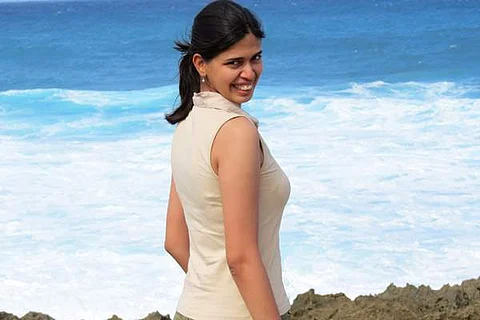

Do you know how fresh your fish is? Or which coast it comes from? There's nothing to be ashamed of if you don't. Almost none of the urban young adults have answers to such questions. But unfortunately, this might be a major contributor in depleting our marine resources, says marine ecologist Dr Divya Karnad, 2019 Future of Nature awardee. Divya and her team at InSeason Fish, which also includes sustainability and safeguard specialist Chaitanya Krishna, work with fishermen to identify sustainable fishing practices.
But Divya says that this alone won't solve the problem. "We also advocate sustainable consumption with seafood consumers by educating them on buying sustainable seafood and providing them with well-researched, responsible choices from Indian coastal waters. The objective is to encourage the food industry to create a supportive environment for marine sustainability and threatened species, like sharks, by procuring diverse, seasonal seafood from fishermen who have the lowest ecological footprint," explains Divya, an Assistant Professor of Environment Studies at Ashoka University. The website has a seasonal planner for 'safe to eat' fishes and the ones that are not 'safe to eat' for every month.
The team at InSeason Fish educates chefs and consumers through guided tours of fishing harbours and fish markets, teaching them about the variety of edible species, and how to choose seafood that is not endangered and not breeding.
"This gives the species a chance to regenerate. We literally show them fresh fish and stale fish and teach them how to spot the difference. We also tell them what questions to ask the sellers and fishermen to ensure that the fish has been caught sustainably. We are working to provide improved markets and alternative incomes for impoverished fishing communities," says Divya and further explains a typical 'Fishploration' visit, "We take people to fishing colonies and villages where they are served a meal of fresh and seasonal fish. So, even if they are hesitant to try something at home, this way, they can taste new varieties and see if they like it. We are working with chefs and restaurants to help them include a variety of seafood in their menu and also, substituting endangered species with a close alternative."
Divya believes that the most imminent threat to the marine environment is over-fishing and climate change and this will also affect us adversely as well. "Our long term goal is to make visible the connection between seafood harvesters and consumers and to highlight the impacts of consumer preferences on the sustainability of the fishing industry," she concludes.
